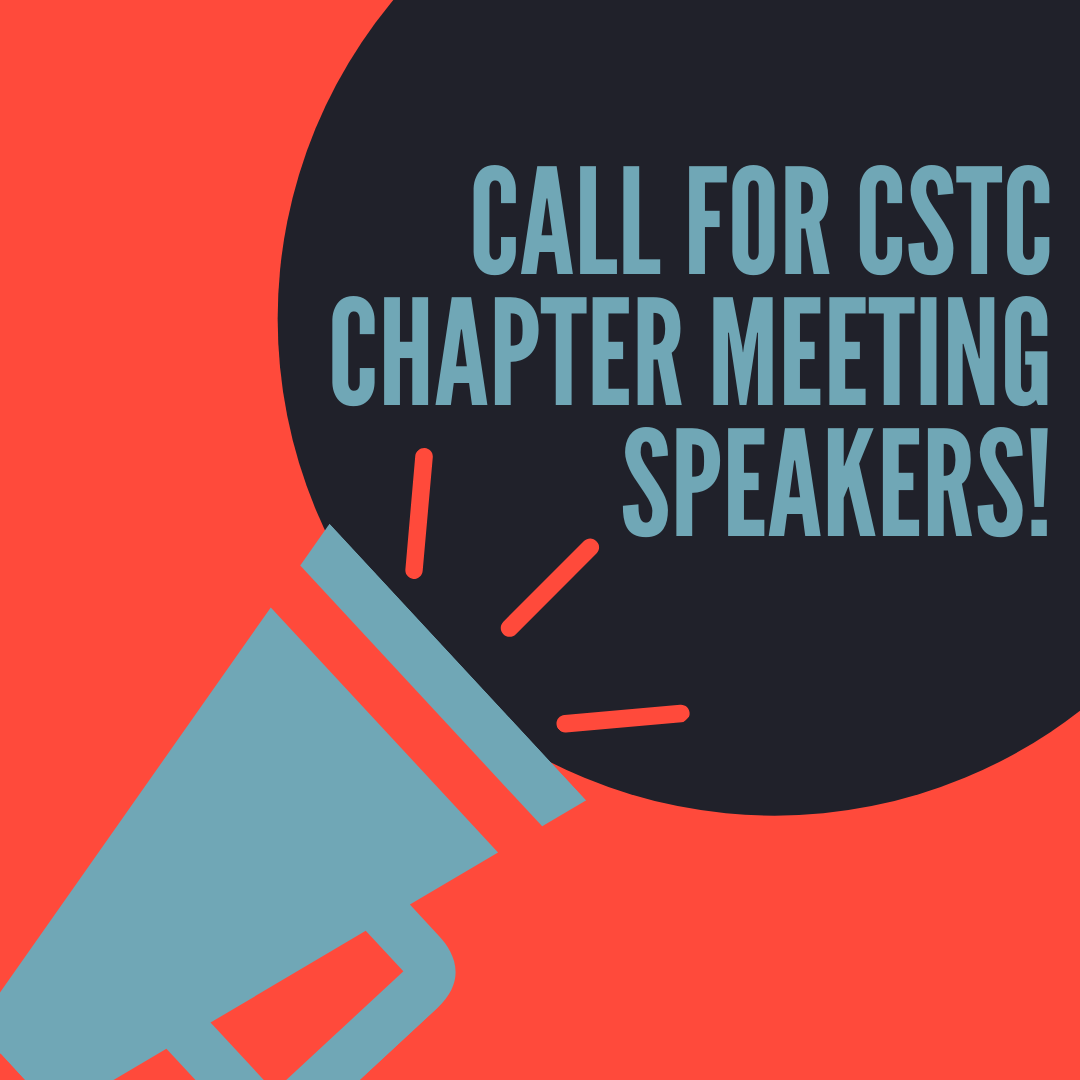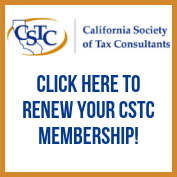|
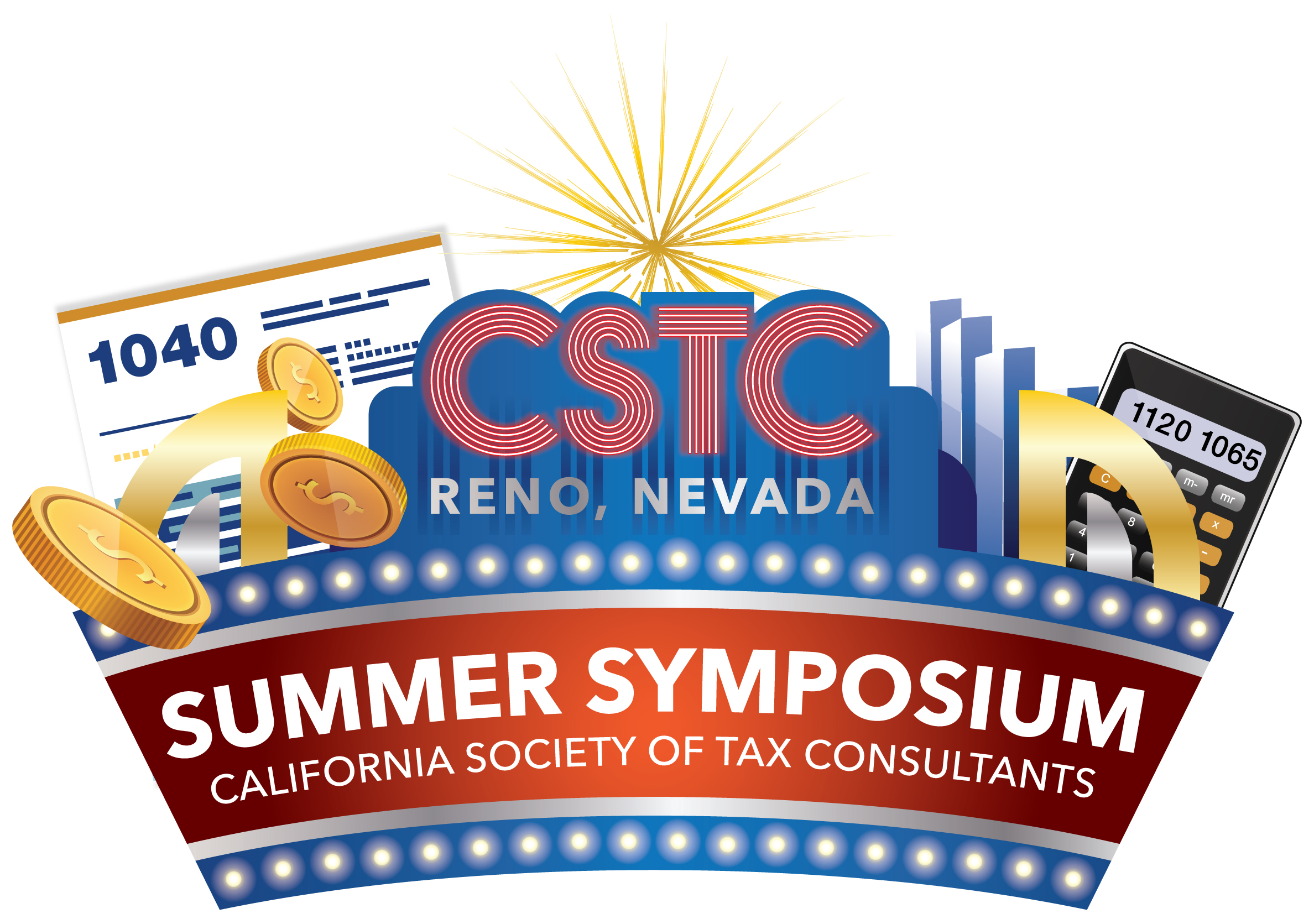
CSTC's 2020 SUMMER TAX SYMPOSIUM
June 7-10, 2020
Silver Legacy Resort and Casino
Reno, NV
Celebrating the 34th Annual Symposium
Diversity best describes both the subject matter and tax professionals who will be attending the 2020 CSTC Summer Symposium. Offering 72 hours of continuing education over a three-day schedule, the agenda is packed with topics including representation, QBI, business entities, AB-5, trusts, California tax, SECURE Act, practice management and more. Industry-leading presenters will include representatives from the IRS and FTB. You will also have access to exhibitors who will share products and services to propel your practice to the next level.
CSTC education is designed for CTEC preparers, Enrolled Agents, CPAs, and attorneys and to fit the needs of all – from new preparers to highly experienced tax professionals. With one of the most affordable price points for educating tax professionals, we encourage you to explore how the CSTC Summer Symposium should be a must-attend for 2020.
We look forward to helping your career when we see you at the 2020 CSTC Summer Symposium.

Quick Links
2020 Exhibitors & Sponsors

Exhibitors:
WANT TO EXHIBIT/SPONSOR AT THE 2020 SUMMER SYMPOSIUM? CLICK HERE!
Summer Symposium Schedule-at-a-Glance
| |
Sunday, June 7, 2020
|
| 3:00pm |
Registration Opens; Exhibitor Set-up |
| 5:20pm-6pm |
Welcome Reception for First Time Attendees |
| 6:00pm-9:00pm |
Welcome Dinner
This event is family friendly.
(Included with full registration. Guest registration is $40) |
| |
Monday, June 8, 2020
|
| 6:30am-5pm |
Registration and Exhibits |
| 7:30am-9:00am |
Session 1: IRS Keynote Presentation and Breakfast
Speaker TBA |
| 9:15am-10:05am |
Breakout Sessions (all sessions will continue after the break): |
| |
Session 2: 199A - Maximizing QBI
Jane Ryder, EA, CPA
|
| |
Session 3: IRS Installment Agreements: A to Z
Veronica Marelli, EA
|
| |
Session 4: IRS Audit & Appeals Representation – Problem Issues of Schedule C
Anthony D. Bustos, EA
|
| |
Session 5: Dear Younger Me: Basics for the Newbie's
Claudia Stanley, CPA, EA
|
| 10:05am-10:20am |
Break with Exhibitors |
| 10:20am-12:00pm |
Breakout Sessions (continued from before the break): |
| |
Session 2 Continued: 199A - Maximizing QBI
Jane Ryder, EA, CPA
|
| |
Session 3 Continued: IRS Installment Agreements: A to Z
Veronica Marelli, EA |
| |
Session 4 Continued: IRS Audit & Appeals Representation – Problem Issues of Schedule C
Anthony D. Bustos, EA |
| |
Session 5 Continued: Dear Younger Me - (Series - Sch A, Sch C, Sch E)
Claudia Stanley, CPA, EA |
| 12:00pm-1:20pm |
Annual Business Meeting Luncheon
(Included with full registration) |
| 1:20pm-3:00pm |
Breakout Sessions: |
| |
Session 6: California Update - What's new for 2020 and what did you miss for 2019 (course repeated on Tuesday)
Karen Joyner, EA
|
| |
Session 7: Community Property State Tax Issues
Susan Tinel, EA
|
| |
Session 8: Form 1041: A roadmap to preparing the fiduciary return
Monica Haven, EA, JD, LLM
|
| |
Session 9: Understanding Criminal Tax Prosecution
Michael Blue, Esq., Attorney at Law, J.D, CPA, LLM
|
| 3:00pm-3:20pm |
Break with Exhibitors |
| 3:20pm-5:00pm |
Session 10: Love and Marriage
Eva Rosenberg, EA, MBA
|
| |
Session 11: Audit Reconsideration
LG Brooks, EA, CTRS
|
| |
Session 12: Employees After Dynamex, AB-5, and Beyond!
Frank Acuña, Attorney at Law
|
| |
Session 13: Secure Act – Part of the Further Consolidated Appropriations Act, 2020
Karen Joyner, EA
|
| 5:00pm-6:00pm |
Reception with Exhibitors |
| 6:00pm |
Evening on Own |
| |
Tuesday, June 9, 2020
|
| 6:30am-5pm |
Registration and Exhibits |
| 7:30am-9:00am |
Session 14: California Keynote Presentation and Breakfast
Speaker TBA
|
| 9:00am-9:15am |
Break |
| 9:15am-10:05am |
Breakout Sessions (all sessions will continue after the break): |
| |
Session 15: Appealing Decisions - Audit, OIC, Tax Court, Bankruptcy Court, Federal District Court
Gary Quackenbush, Esq |
| |
Session 16: Business Entity Balance Sheets & Basis
Jane Ryder, EA, CPA |
| |
Session 17: LLC Classifications & Elections
Susan Tinel, EA
|
| |
Session 18: Discovering the Life Cycle of a Non-profit Organization
David Eastis, CRTP
|
| 10:05am-10:20am |
Break with Exhibitors |
| 10:20am-12:00pm |
Breakout Sessions (continued from before the break): |
| |
Session 15 Continued: Appealing Decisions - Audit, OIC, Tax Court, Bankruptcy Court, Federal District Court
Gary Quackenbush, Esq |
| |
Session 16 Continued: Business Entity Balance Sheets & Basis
Jane Ryder, EA, CPA |
| |
Session 17 Continued: LLC Classifications & Elections
Susan Tinel, EA |
| |
Session 18 Continued: Discovering the Life Cycle of a Non-profit Organization
David Easts, CRTP |
| 12:00pm-1:20 pm |
Lunch on own |
| 1:20pm-3:00 pm |
Breakout Sessions: |
| |
Session 19: Dealing with Intellectual Property After TCJA
Curt Harrington, Attorney at Law, EA
|
| |
Session 20: S Corporation Taxation Issues
Cliff Leiker, CPA
|
| |
Session 21: California Update - What's new for 2020 and what did you miss for 2019 (REPEAT FROM MONDAY)
Karen Joyner, EA
|
| |
Session 22: Collection Due Process Tax Matters
LG Brooks, EA, CTRS
|
| 3:00pm-3:20pm |
Break with Exhibitors |
| 3:20pm-5:00pm |
Session 23: What to Do With an A/B Trust That No Longer Makes Sense
Frank Acuña, Attorney at Law
|
| |
Session 24: Shannon's Hall of Tax Curiosities - Curiouser and Curiouser
Shannon Hall, EA
|
| |
Session 25: The Tax Consequences of Choice: Options, Futures, Rights & Warrants
Monica Haven, EA, JD, LLM
|
| |
Session 26: Rethink What you Know about Tax, Wealth & Business Exit Planning
Edward Cotney, Certified Exit Planner, Certified Philanthropic Developer, Family Wealth Counselor
|
| |
Wednesday, June 10, 2020
|
| 6:30am-5pm |
Registration and Exhibits |
| 7:30am-9:00am |
Session 27: Breakfast Presentation - Reading Between the Lines - How to Identify What Your Client Hasn't Told You
Eva Rosenberg, EA, MBA
Class to continue after the break |
| 9:00am-9:15am |
Break |
| 9:15am-10:05am |
Session 27 Continued: Breakfast Presentation - Reading Between the Lines - How to Identify What Your Client Hasn't Told You
Eva Rosenberg, EA, MBA
|
| 10:05am-10:20am |
Break with Exhibitors |
| 10:20am-12:00pm |
Breakout Sessions: |
| |
Session 28: IRA Fundamentals, IRA Trusts, and the Secure Act
Frank Acuña, Attorney at Law |
| |
Session 29: Filing the Non-Filer
Veronica Marelli, EA |
| |
Session 30: Interest Income, Expense & Deductions for Individuals, Investment and Businesses
Jane Ryder, EA, CPA |
| |
Session 31: IRS Notices - Recognition & Response
LG Brooks, EA, CTRS |
| 12:00pm-1:20pm |
Lunch on Own |
| 1:20pm-3:00pm |
Session 32: Stump the Tax Experts
|
| 3:00pm-3:20pm |
Break |
| 3:20pm-5:00pm |
Session 33: Tax Professional Issues - ETHICS
Gary Quackenbush, Esq
|
| 5:15pm |
Grand Prize Drawing |
Registration Information and Fees
|
Category
|
By 3/6/20
|
By 3/20/20
|
By 4/17/20
|
After 4/17/20
|
|
Members
|
$465
|
$485
|
$535
|
$585
|
|
Staff of Members
|
$490
|
$510
|
$560
|
$610
|
|
Non-Members
|
$565
|
$585
|
$635
|
$685
|
|
Sunday Social Event Guest Tickets
|
$40
|
$40
|
$40
|
$40
|
Registration fees include: Educational Sessions, Speaker Materials on a USB*, Daily Breakfasts, Monday Annual Business Meeting Luncheon, Sunday Evening Social & Buffet, Refreshment Breaks, Exhibitor Reception, and CEC Reporting.
*Hardcopy speaker materials available for purchase for $80
Cancellation and Refund Policy: Written registration cancellations will be accepted until May 7, 2020. A $100 administrative fee will apply to the refund. No refunds will be given if cancellation notice is received after 5:00 p.m. on May 7, 2020, or for no-show registrants.

Book Your Room!
Silver Legacy Resort and Casino
407 N Virginia St
Reno, NV 89501
Silver Legacy Resort Casino is a 1,600+ room premier destination, located in the heart of Reno, boasting the perfect amenities for any getaway: recently renovated guest rooms and spa suites, over 50 headlining entertainers a year, six award-winning restaurants including Ruth’s Chris Steak House, LA’s famous Canter’s Delicatessen, a brand-new, state-of-the-art Poker Room, William Hill Race and Sports Book, and Laugh Factory Comedy Club, the #1 comedy club in the country.
Daily Rate: $60 daily room rate and $20 per night resort fee plus taxes and fees
This resort fee provides guests with round-trip airport shuttle service 19 hours per day, both covered valet and covered self parking, unlimited local and toll-free 800 phone calls, complimentary in guest room wireless internet for 2 devices per room and in meeting space, in-room guest coffee maker, admission to the health spa and boarding pass printing at the Bell Desk or Concierge Desk.
**The group rate is only available during the dates of the Summer Symposium (June 7-10, 2020). If you wish to stay at the hotel before or after those dates, the room rate will be $125.
Guarantee/Deposit: All reservations require a credit card deposit of one night room and tax at the time of booking.
No-Show/Cancellation: All reservations must be cancelled 3 days prior to the arrival date to receive the deposit refund.
Click to following link to make your reservation online: https://book.passkey.com/event/50065331/owner/7272/landing
You can also call 800-687-8733 to make your reservation.
Rate Code: CSTC20
Check-In Time: 3:00 PM
Check-Out Time: 12:00 PM
Cutoff date to book your hotel is May 6, 2020
Session Descriptions
Monday, June 8, 2020
Session 1: IRS Keynote Presentation
Presenter: TBA
Knowledge Level: Intermediate
Hours TBA
Session 2: Maximizing QBI
Presenter: Jane Ryder, EA, CPA
Maximizing QBI for S-Corps reasonable compensation, Partnerships guaranteed payments and partner allocation formulas, Sole Proprietorships hiring children and spouses, and Rental Real Estate QBI safe harbor vs Section 162, triple net leases and more. Other QBI tax savings, specified service business classifications, depreciable assets, pension plans, health insurance, etc.
Knowledge Level: General
3 Federal Tax Law Hours
Learning Objectives:
#1: Learn to maximize QBI for different business entities
#2: Rental QBI issues, triple net leases, safe harbor vs Section 162, depreciation, etc
#3: Specified Service business classifications and allocations
Session 3: IRS Installments Agreements: A to Z
Presenter: Veronica Marelli, EA
Installment Agreements: A to Z is a presentation to immerse the learner in the myriad ways the IRS helps taxpayers in paying their tax debt. We will explore all of the Installment Agreement options as laid out in IRM Section 5. Additional instruction will include: An in-depth look into each specific Installment Agreement. Analyzing the most beneficial Installment Agreement for a particular taxpayer. Tips, tricks, and how to’s of qualifying taxpayers for specific Installment Agreements.
Knowledge Level: Intermediate
3 Federal Tax Law Hours
Learning Objectives:
#1: This course will delve in-depth into ALL types of IRS Installment Agreements: Guaranteed, Streamlined, Direct Debit, Online Payment Agreement, Partial Pay, and In-Business Trust Fund Express.
#2: Attendees will learn what the coinciding requirements are for each Installment Agreement.
#3: Upon completion, attendees will understand how to analyze which Installment Agreement programs best meet the specific needs of their taxpayers.
Session 4: IRS Audit & Appeals Representation – Problem Issues of Schedule C
Presenter: Anthony D. Bustos, EA
The is the real down to earth “Nuts and Bolts” of IRS Audit Representation, when sitting across the desk from an auditor. We will cover the full Audit process, and your preparation of substantiation and narratives for the audit. Preparation & Presentation is my mantra: how to prepare the documents in an organized manner and their resulting presentation to the auditor.Analyzing the issues selected for audit and meeting with the client prior to your IRS appointment whereby you play “devil’s advocate” to determine current and potential problems and to flesh out any missing items your client still needs to provide. Do not let the client control you, you are the expert. This covers the information regarding audits, appeals, and tax law that you must inform your client about. We review IRS letters and forms such as the audit report Form 4549 and the most common math errors they make on the report and how to determine and address them, Statute Extension Form 872, and others along with a suggested writing style in corresponding with the IRS. How to communicate with the auditor (what to say, what not to say) and why the Service Center selects tax returns for audit. We discuss Office audit vs. Field audits, (and correspondence audits), items auditors are required to inspect, and how and why they may expand the audit issues and years. In addition, we discuss the various Appeal processes, Notice of deficiency, and case closure. This is to make you fully aware of the important items you need to know in an audit situation.
Knowledge Level: Basic / Intermediate / Advanced
3 Federal Tax Law Hours
Learning Objectives:
#1: The benefit of having a substantial amount of knowledge regarding audit representation
#2: Understanding the IRS audit forms and how to understand and use them
#3: Protecting yourself from any client "finger pointing" if you do not prevail on some issues in an audit
Session 5: Dear Younger Me: Basics for the Newbie's
Presenter: Claudia Stanley, CPA, EA
The course offers sage advice from seasoned preparers for those who are newer to the industry. We'll cover the basics of preparing the 1040, Schedule A, Schedule C, Schedule E forms. Included are tips on conducting interviews, dealing with challenging clients, and other advice we all wish we'd been offered when we were starting out.
Knowledge Level: Basic
3 Federal Tax Law Hours
Learning Objectives:
#1: Basics you need to know before tackling the Schedule A, Schedule C, or Schedule E.
#2: Basics of conducting an effective tax interview to assure you have all the information needed to prepare the return.
#3: Where to go for resources to assist in the preparation process.
Session 6: California Update - What's new for 2020 and what did you miss for 2019
Presenter: Karen Joyner, EA
In this session we will into AB5 and all those exclusions and who really qualifies, new CA Health care mandate, new requirement for savings plan and the new California young child tax credit. Let’s not forget about the new federal extender bill and did California conform. We will review a non-conformity table that will make it easy for you to identify which adjustments you will need for California.
Knowledge Level: Overview
2 California Hours
Learning Objectives:
#1: How will AB5 affect taxpayers
#2: Nexus, understand Wayfair and what it means to California taxpayers
#3: California Health care mandate
#4: How does the Secure Act affect California's conformity?
Session 7: Community Property State Tax Issues
Presenter: Susan Tinel, EA
Community property states come with special issues and tax consequences when it comes to preparing a Married Filing Separate income tax return. From the classification of community property versus separate property to the input on an income tax return, you will learn how to prepare an MFS return like a pro!
Knowledge Level: Overview
2 Federal Tax Law Hours
Learning Objectives:
#1: Identify what is Community Property vs. Separate Property
#2: How to prepare an MFS tax return for community property state taxpayers
#3: Special Cases – RDP tax returns and Military tax returns: reporting requirements and tax differences
Session 8: Form 1041: A Roadmap To Preparing The Fiduciary Return
Presenter: Monica Haven, EA, JD, LLM
The preparation of The US Income Tax Return for Estates & Trusts (Form 1041) is an art that requires juggling oft-competing obligations between the tax authorities, personal representatives and beneficiaries. Many practitioners assume that “Form 1041 can’t be much different than Form 1040” but are soon overwhelmed by the intricacies of Subchapter J of the Internal Revenue Code. This class will examine the basics of estates and trusts, provide an understanding of distributable net income (DNI) and income-in-respect of decedent (IRD), and offer a practical guide to completing the fiduciary income tax return.
Knowledge Level: Intermediate
2 Federal Tax Law Hours
Learning Objectives:
#1: Understand the timeline and tax filing requirements faced by a decedent’s personal representative.
#2: Identify reportable items of income and deductible expenses, as well as distinguish between accounting, distributable and taxable income.
#3: Diligently and properly complete Form 1041.
Session 9: Understanding Criminal Prosecution of Tax Crimes
Presenter: Michael Blue, Esq., Attorney at Law, J.D, CPA, LLM
Gain an understanding of specific tools and techniques that can be used when dealing with criminal tax for attorneys. Many practitioners do not understand what facts must be present in order for the IRS to criminally prosecute a taxpayer for a tax crime. Additionally, many practitioners do not understand the criminal tax statutes that the IRS uses to prosecute taxpayers for tax crimes. This topic will explain the nuts and bolts involved in a criminal tax investigation and the tools and techniques that practitioners should use to defend the taxpayer through the criminal tax investigation and up to the trial.
Knowledge Level: Basic / Intermediate / Overview
1 Federal Tax Law Hour
1 Ethics Hour
Learning Objectives:
#1: Defining Civil Tax Avoidance and Defining Criminal Tax Evasion, Understanding The Supreme Court's Definition of Willfulness for a Tax Crime
#2: Using Documents Such as Tax Returns, Public Records, Bank Records and CPA Work Papers to Prove a Tax Crime
#3: How the Practitioner Should Work With CPAs to Prepare a Defense to the Alleged Tax Crimes
Session 10: Love and Marriage
Presenter: Eva Rosenberg, EA, MBA
You will learn how to have the “hard talk” with your clients when they get engaged – or contemplate getting married. Too many marriages break up over misunderstandings about each other’s financial practices – or because of shocking financial revelations after marriage – like tax debt, unpaid child support, student loan debts offsetting refunds, or…We will discuss steps to take to help each finance(e) learn about the other’s finances – the good, the bad, and the ugly. How to find the information about each other – with their permission and cooperation. And how to face and fix the problems we discover.The goal is not to prevent the marriage.The goal is to delay the marriage until some problems are resolved; or set up a procedures to protect the injured spouse’s assets in advance.
Knowledge Level: Basic / Intermediate
1 Federal Law Hour
1 California Hour
Learning Objectives:
#1: You will get a list of questions to ask your clients, so you can open the discussion about each other’s finances. And you will help them understand and articulate their own attitudes towards money.
#2: You will learn how to get a pretty complete set of information on each fiancé(e), in order to build a complete and honest financial picture about each of them – for their own benefit. You will understand how to discuss this with them in an objective environment – no judgment – no sides. And, in some cases, although they love each and live together, you may have to make the difficult point that it is in their best interests not to get married – and why.
#3: With all that information at hand, you will learn how to work with them to make provisions to clean up problems before marriage. And to determine the best time to get married, based on the problems.OR you will provide them with guidance on keeping income and assets separated For couples who are not engaged, just living together, you’ll get a better idea of when to step in an recommend that they do get married.In addition, you will learn how to handle MFJ vs MFS taxes after marriage when someone discovers the new spouse's financial problems.
Session 11: Audit Reconsideration
Presenter: LG Brooks, EA, CTRS
Subsequent to an "un-agreed" or non-productive tax audit or examination (whether federal or state), usually taxpayers are left with few choices or options to challenge the results of their case. Although taxpayers usually have a "right" to file an Appeal regarding a post-audit issue, some taxpayers, as well as practitioners, are intimated by this formal process. However, taxpayers, as well as practitioners, should be aware that a "second chance" option exists which avoids the preparation of a formal Appeal which is known as the request for an "Audit Reconsideration".This presentation is designed to discuss & explain the "audit reconsideration" process and to provide suggested guidance concerning the proper preparation of an "audit reconsideration" request which can be very effective and which usually prevents the preparation of a formal Appeal.
Knowledge Level: Intermediate
2 Federal Tax Law Hours
Learning Objectives:
#1: Benefit #1 will be the knowledge of how an audit reconsideration should be prepared and more importantly why the taxpayer or practitioner should consider such action.
#2: Benefit #2 provides the attendees the legal and administrative guidelines required regarding the preparation and submission of an audit reconsideration.
#3: Benefit #3 will outline the various approaches & formats that should be considered with respect to drafting the audit reconsideration and the explanation of what types of documentation and information that should be provided with an audit reconsideration to validate the taxpayers' position.
Session 12: Employees After Dynamex, AB-5, and Beyond!
Presenter: Frank Acuña, Attorney at Law
Recent court cases and new California law have completely upended the distinction between employees and independent contractors. Failure to classify correctly will leave our clients (and ourselves) open to claims, damages, and penalties for failing to provide proper wages and benefits. And, of course, there could be a liability for employment-related taxes that have not been properly withheld. This class will review the traditional test for employees vs. independent contractors, the Dynamex decision, and the legislature’s response, which makes it very difficult for businesses to claim that anyone is an independent contractor. Tips will be given for how to minimize liability, and crucial reporting requirements will be presented.
Knowledge Level: Intermediate / Advanced
2 California Hours
Learning Objectives:
#1: Review traditional methods of identifying independent contractors and employees, and the reporting requirements for each.
#2: Study the Dynamex case, AB5, and legislative history that changed how California identifies employees.
#3: Apply Dynamex and AB5 in the context of a tax advisor who is counseling small, medium, and large business owners and suggest legal strategies to retain independent contractor status.
Session 13: Secure Act – Part of the Further Consolidated Appropriations Act, 2020
Presenter: Karen Joyner, EA
Just passed December 2019, you might have missed it in the traditional update class. We will dive into all extenders. Explore retirement plans and all the new changes, RMD has a new age, Inherited IRA’s, special penalty-free distributions, energy credits and more.
Knowledge Level: Basic / Intermediate
2 Federal Tax Law Hours
Learning Objectives:
#1: Energy credits – Windows still count? What about solar?
#2: IRA’s – age for contribution and RMD’s
#3: House foreclosures, are they still out there?
Tuesday, June 9, 2020
Session 14: California Taxpayer Advocate Breakfast Presentation
Presenter: TBA
Knowledge Level: TBA
Hours TBA
Learning Objectives: TBA
Session 15: Appealing Decisions
Presenter: Gary Quackenbush, Esq
Question: What could you do if the decision the IRS just made about your client's taxes is rotten? Answer: Appeal it! There are multiple ways to "appeal" a decision that you don't like. In this class we will discuss what appeal options are available to you, and how to implement them. We will discuss how to change a bad outcome into a better and maybe even good outcome. Some of the procedures you will learn are Taxpayer Advocate, IRS appeals office, Bankruptcy Court, District Court, and even US Tax Court. You might be surprised to learn just how far you can take your client's tax appeal case.
Knowledge Level: Basic / Intermediate
3 Federal Law Hours
Learning Objectives:
#1: You will learn just how far you can take your client's tax appeal case.
#2: You'll learn how to get you clients a "second bite at the apple"
#3: We will have fun together learning how to handle IRS assessments and the after-math in appeals.
Session 16: Business Entity Balance Sheets & Basis
Presenter: Jane Ryder, EA, CPA
Preparing and reporting business tax return balance sheets. Working with accounting reports, from simple P&Ls to complete accurate financial statements and everything in between! Balance sheet items; retained earnings, shareholder loans, non-deductible expenses, etc. Classifying transactions for basis considerations, educating the client on balance sheet issues, and more.
Knowledge Level: Intermediate
3 Federal Tax Laws
Learning Objectives:
#1: Learn the correct way to report balance sheets for business tax returns for each entity type
#2: Understand the components of balance sheets and that affect basis Learn strategies of maximizing taxpayer benefits for basis considerations
#3: Determine criteria for classifying transactions; loans vs distributions
#4: Develop practices for training clients and bookkeepers regarding balance sheets and Tax AJEs
Session 17: LLC Classifications & Elections
Presenter: Susan Tinel, EA
LLC’s, while a more flexible entity than corporations for legal requirements, can be quite complex for tax purposes. As your LLC clients’ business operations and classifications change, you need to make sure that you’re able to advise them through this transition while preparing their tax returns. In this session, you will learn the different classifications an LLC can fall under for income tax filings and how to file the various elections that can be associated with an LLC.
Bonus material: Navigating LLC member changes
We will discuss and breakdown the various procedures, forms and issues that arise when an LLC changes membership, as well as the tax consequences with moving from one entity classification to the other.
Knowledge Level: Intermediate / Advanced
3 Federal Tax Law Hours
Learning Objectives:
#1: Introduction to LLC’s for income tax purposes and Default Classifications for filing income taxes
#2: Filling out Form 8832 & Form 2553 and when to order an EIN
#3: Proper steps for transitioning member changes in an LLC, tax consequences and reporting requirements
Session 18: Discovering the Life Cycle of a Non-profit Organization
Presenter: David Eastis, CRTP
This course will introduce the audience to the life cycle of a non-profit organization.
Stage 1: Starting Out
Creating a non-profit organization under state law, acquiring an EIN, and identifying appropriate Federal tax classification.
Stage 2: Applying for Exemption
Acquiring, completing, and submitting application Forms 1023, 1024, and CA Form 3500; and discover how the IRS and FTB processes applications.
Stage 3: Required Filings
Annual Exempt Organization Returns Form 990, Form 199 (CA), Form RR1 (Attorney General of CA), Statement of Information (Sec of State); and unrelated business income tax filings.
Stage 4: Ongoing Compliance
Determining how a non-profit organization can avoid jeopardizing its tax-exempt status.
Stage 5: Significant Events
Understanding audits, private letter rulings, and the termination process.
Case Study: we will complete a final Form 990 and Form 199 in order to close a non-profit organization.
Knowledge Level: Intermediate
2 Federal Tax Law Hours
1 California Hour
Learning Objectives:
#1: Attendee will be able to assist potential clients with applying for exemption for a non-profit organization, submitting application forms 1023,1024, and CA form 3500.
#2: Attendee will be able to navigate and fill out form 990, form 199, form rr1, and statement of information. They will complete a final form 900 and form 199 in order to close a corporation.
#3: Attendee will determine how a non-profit organization can avoid jeopardizing its tax-exempt status.
Session 19: Intellectual Property Taxation, Past & Future?
Presenter: Curt Harrington, Attorney at Law, EA
Intellectual Property and its taxation over the past 21 years has experienced decline. To understand it, we will review the advantages of the past, the causes of decline, and how to partially deal with the decline as our clients look to preserve their rights to make-up some of the losses in the decline and position for some modest return of rights in the future. Part of game is to have our clients package, preserve, and control IP rights in a way that benefits our clients with some aspects of the advantages that once operated nearly automatically.
Knowledge Level: Intermediate
2 Federal Tax Law Hours
Learning Objectives:
#1: Attendees will learn the different types of intellectual property rights, how they are created, how they can be protected, (or not), and what to look for at the end of the trail for each:
(1) Introduction & Understanding the Negative Nature of IP and thinking inversely.
(2) Overview of Intellectual Property Categories & Process for moving forward.
(3) Tax Treatment of Patents, Copyrights, & Trademarks - then, now and future?
(4) The "Prolific Inventor" model diminishes in favor of collaboration?
(5) Was it a bad idea to focus on small startup inventors & instant capital gains?
#2: Attendees will get an idea of how a policy disfavoring pure intellectual property control is likely to remain in one form or another from now on, and why, and that the IP owner will have to work harder and faster to try an keep ahead. The hunt for the perfect invention, the perfect business just gets more difficult.
#3: Attendees will be left to think in terms of techniques, checklists and approaches that an IP owner could employ and expect resistance from everyone.
(1) Carrot & Stick for Licensing & Provisions for Inducing Action.
(2) How to help inventive taxpayers keep more of the money they earn.
(3) Insurance: Offensive & Defensive Patent Insurance, and trademark insurance, indemnification.
(4) planning & using the whole of the design patent - trademark life cycle.
(5) Diversification of Entities & Diversification to Reduce Risk & Run Lean.
(6) Use Business Credits and the Threat of relocating to obtain some tax help.
Session 20: S Corporation Taxation Issues
Presenter: Cliff Leiker, CPA, MBA
Participants will gain an overall knowledge and specific instances of routine tax issues related to S Corporation Form 1120S filings, including legal/tax corporate entity separation requirements, reasonable compensation, calculating basis, different distribution types, and California state taxation. Presentation slide copies will be provided, including mathematical calculations.
Knowledge Level: General
2 Federal Tax Law Hours
Learning Objectives: TBA
Session 21: California Update – What's new for 2020 and what did you miss for 2019 (REPEAT)
Presenter: Karen Joyner, EA
In this session we will into AB5 and all those exclusions and who really qualifies, new CA Health care mandate, new requirement for savings plan and the new California young child tax credit. Let’s not forget about the new federal extender bill and did California conform. We will review a non-conformity table that will make it easy for you to identify which adjustments you will need for California.
Knowledge Level: Overview
2 California Hours
Learning Objectives:
#1: How will AB5 affect taxpayers
#2: Nexus, understand Wayfair and what it means to California taxpayers
#3: California Health care mandate
#4: How does the Secure Act affect California's conformity?
Session 22: Collection Due Process Tax Matters
Presenter: LG Brooks, EA, CTRS
The United States Congress has granted the United States Treasury Department broad powers to convey significant legal & administrative authority to the IRS to establish, create, investigate & more importantly "collect" federal taxes from all types of taxpayers. However this "collection procedure" at times has created massive abuses of taxpayer rights & privileges. Therefore, pursuant to the "IRS Reform & Restructuring Act of 1998", Congress created and implemented a procedure to prevent & protect taxpayers rights which is known as the "Collection Due Process" (CDP) procedure.This presentation is designed to demonstrate, discuss and explain the legal & statutory guidelines of the CDP process. Specific details will be reviewed and explored pertaining to the CDP language as well as when & how the practitioner should respond to a CDP issue. "Legal alternatives" regarding a CDP tax matter will be discussed & explored as well.
Knowledge Level: Advanced
2 Federal Tax Law Hours
Learning Objectives:
#1: Discussion & identification of the various types of "CDP" notifications issued by the IRS
#2: Explanation of the legal ramifications of the CDP procedures as well the legally defined time frames to respond to a CDP issue
#3: Hands-on demonstrations and "case response templates" pertain to preparing & submitting a formal response to a potential CDP issue as well how to respond to and address a post-CDP tax matter in an effective manner
Session 23: What to Do With an A/B Trust That No Longer Makes Sense
Presenter: Frank Acuña, Attorney at the Law
Do you remember when the estate tax exemption equivalent was $600,000? Many of our clients' estate planning (through 2012) was based on "permanent" exemption equivalents of $600,000 or $1,000,000. What should be done about those "unneeded" A-B trusts now? What if one of the spouses has died? Are we stuck with the trust, or are there ways to deal with those trusts? What if the effect of the A-B trust is to subject our clients to needless capital gains tax due to the loss of the second basis step-up?This practical, hands-on seminar is taught from the perspective of legal and tax advisors who will be meeting with a surviving spouse.
Knowledge Level: Overview
2 Federal Tax Law Hours
Learning Objectives:
#1: Review basic trust structures used since 1986, and the tax problems caused by A/B Trusts.
#2: Understand TCJA changes.
#3: Demonstrate how old or "stale" A/B trusts can be revised, restated, or revoked to become tax-effective again.
Session 24: Shannon's Hall of Tax Curiosities - Curiouser and Curiouser
Presenter: Shannon Hall, EA
Never before has a collection of such mystifying creatures been brought together for the shock and enjoyment of any soul brave enough to step right up and enter the Hall of Tax Curiosities! Dare you come face to face with a terrifying specimen of Self-Employed Actor?!? Can your heart stand the terrifying truths of where to report royalties?!? Can you bear to look upon the Air BnB Host who doesn’t know they should be on a Schedule C rather than a Schedule E?!? Can you look upon the Cryptocurrency and try to solve its mysteries?!? Newly updated with brand new sideshow curiosities: Steel your nerves as we gaze upon the dreaded AB5! Can you bear to enter the shocking new world of employee classification?!? These questions and many others will be answered…if you dare!
Knowledge Level: Basic / Intermediate
2 Federal Tax Law Hours
Learning Objectives:
#1: Learn how to handle clients in the entertainment industry and address their unique needs.
#2: Explore reporting of income from Airbnb and other gig type side-hustles.
#3: Learn the basics of crypto reporting and legal cannabis
Session 25: The Tax Consequences of Choice: Options, Futures, Rights & Warrants
Presenter: Monica Haven, EA, JD, LLM
What are they? Who has them? What do you do with them? How are they taxed? These and other questions will be answered in plain English, giving tax professionals a better understanding of the investment world. Topics will include puts, calls, rights, warrants, futures, forwards, foreign currency transactions, employee stock options, incentive stock options, as well as the trading methodologies and tax treatments of each—basis, income recognition under IRC §83(b), and (of course!) AMT.
Knowledge Level: Intermediate
2 Federal Tax Law Hours
Learning Objectives:
#1: Understand the difference between puts, calls, rights and warrants; and properly report transactions involving derivative securities on Schedule D.
#2: Apply the distinctive treatment of incentive stock options, non-statutory options, and other employee stock options, as well as restricted stock.
#3: Identify regulated contracts subject to the bifurcated tax treatment of IRC §1256 and know when to employ the IRC §83(b) or mark-to-market elections.
Session 26: Rethink What you Know about Tax, Wealth & Business Exit Planning
Presenter: Edward Cotney, Certified Exit Planner, Certified Philanthropic Developer, Family Wealth Counselor
Selling a business is often the single most important financial transaction of a business owners’ life. This course will prepare you for your role as their most trusted advisor with insight, questions, statics and a case study utilizing a near-zero tax exit of an operating business and commercial property. Learn which exit paths owners are choosing and why. We will review Form 8594 and discuss promissory notes.
Knowledge Level: Intermediate / Advanced
1 Federal Tax Law Hour
1 California Hour
Learning Objectives:
#1: You will learn the 5 critical elements of a successful exit plan.
#2: What are the "Top 12 Business Continuity Questions" and why every business owner should address these issues now.
#3: Every business owner will exit their business one day. What are the "Top 10 Business Succession Questions" you need to help them preserve and protect that value?
Wednesday, June 10, 2020
Session 27: Reading Between the Lines - How to Identify What Your Client Hasn't Told You - Breakfast Presentation
Presenter: Eva Rosenberg, EA, MBA
You will amaze your clients by knowing things about their past year that they don't even remember. You will know about their activities, types of income, children's activities and perhaps even secrets about your clients. After all, there are things you need to know about your clients in order to prepare their tax returns, right? So consider this a session on mind-reading for fun and taxes. Learn to make your clients think you are clairvoyant. Yes, you CAN appear to read their minds. Yes, there IS a secret to this. TaxMama will tell all!
Knowledge Level: Basic
2 Federal Tax Law Hours
Learning Objectives:
#1:
- You already really know a lot about your clients
- Learn how to track information about them throughout the year -and how to retrieve the information you already.
- And why it's also to your advantage to know more about your client's industry.
- Yes, you do have more knowledge about them than you realize
#2:
- During the client interview, you're going to get a lot of information - but what's missing?
- And how to understand what they didn't tell you.
- California and Federal Issues - Cover your clients
- Schedule A
- Schedule B
- Schedule C or Business Return
- Office in Home
- Net Income and Hobby Loss issues
- Business Plan Prepare Exposure and Conflict of Interest
- Tax Credits
- And more...
#3:
- Things you need to do:
- Before the Client Leaves – with incomplete information
- After the Client leaves - Know the relevant IRS and State resources that apply to THEM
- Specialize - don't be all things to all people - there's too much to learn
- Be familiar with the Current Scams to Advise Them to Avoid
- Know how to avoid audits
Session 28: IRA Fundamentals and the Post Secure Act World
Presenter: Frank Acuña, Attorney at Law
Now that we have a “permanent” estate tax law, our clients’ attention has been diverted to other tax issues. Chief among these; how to reduce the income tax burden associated with Individual Retirement Accounts. This class will provide an overview of income and estate taxation related to IRAs. We will focus particularly on increasing the amount available as an inheritance to charities, children, grandchildren, and others. We will also look at the disastrous Clark v. Rameker decision, which destroyed bankruptcy protection for inherited retirement accounts, and how IRA trusts can provide spendthrift, asset, and bankruptcy protection for any size of a retirement account. Finally, we will highlight expanded services that tax professionals could offer to their clients. Emergency Update: What has the SECURE Act done to retirement account planning! This is a cutting edge class!
Knowledge Level: Overview
2 Federal Tax Law Hours
Learning Objectives:
#1: Thoroughly understand IRA contribution and distribution rules.
#2: Review distribution and asset protection strategies in light of the SECURE Act's passage.
#3: Examine situations in which IRA trusts could, or should, be used.
Session 29: Filing the Non-Filer
Presenter: Veronica Marelli, EA
Filing the non-filer is a step by step tutorial on how to file tax returns for taxpayers who have not filed for a number of years. We will be discussing the common problems that perpetuate an individual from not filing a tax return, and how to creatively overcome these unique problems.
Knowledge Level: Advanced
2 Federal Tax Law Hours
Learning Objectives:
#1: Identifying common reasons that cause a taxpayer to not file a tax return. We will be using these problems to create repeatable systems to aid in preparing previous years tax returns.
#2: In this course, we will discuss how, where, and what tools are available to aid in reconstructing lost tax documents. Some unique and often overlooked sources.
#3: We will be demonstrating the importance of also recreating expenses to offset income for Schedule C taxpayers. Learning where and how to find lost expenses will prove invaluable to your taxpayers, and gain prepares hero status!
Session 30: Interest Income, Expense & Deductions for Individuals, Investment and Businesses
Presenter: Jane Ryder, EA, CPA
Interest income; US Treasury, OID, imputed interest, nominee interest, etc. Interest expense; homeowner mortgage, rental property, investment, margin, imputed interest, capitalized interest, shareholder/partner loans, reverse mortgages, student loans, etc. Also tracing rules, negative amortization, seller-financed interest, buying out spouse’s property ownership, buying out shareholder/partner, HERO solar loans, etc.
Knowledge Level: General
2 Federal Tax Law Hours
Learning Objectives:
#1: Review rules for interest income, OID, US Treasury, Nominee Interest, Imputed Interest, Tax-Free Muni's
#2: Interest Expense & Deductions for individuals, homeowner mortgage, margin interest, seller-financed mortgages, student loan interest, investment interest
#3: Interest Expense & Deductions for Rentals & Business, tracing rules, interest limitations, capitalized interest
#4: Other Interest Expense & Deductions, spouse buy out, partner/shareholder buy out, HERO loans, nominee interest, negative amortization and more
Session 31: IRS Notices - Recognition & Response
Presenter: LG Brooks, EA, CTRS
The Internal Revenue Service (IRS) utilities a sophisticated formal notice and correspondence system to contact and inform taxpayers of various types of tax issues and specific tax matters. Some of these notices are only informational in nature, however, others are more serious being "statutory" or "legal" notices in nature, therefore, the weight of these type notices demands a heightened awareness and a formal or even prompt response. The objectives of this presentation are designed to, first of all, explain the IRS Notice System and to "identify" the various IRS Notices and the effect of each type of notice. Additionally, we will demonstrate and explain how & when practitioners should respond to these notices in an effective manner.
Knowledge Level: Intermediate
2 Federal Tax Law Hours
Learning Objectives:
#1: Explanation of the various types of IRS notices as well as the legal or administrative weight of each type notice
#2: A detailed explanation and demonstration of how-to and when to respond to a particular type of IRS Notice
#3: Presentation of actual "draft responses" or "templates" that can be employed by the attendee immediately to address any pending IRS Notice matter
Session 32: Tax Experts Panel
This is a special question and answer session with our unique panel of Tax Experts that includes many of our terrific speakers who have agreed to let us test their tax knowledge! Do you have a burning question that is driving you crazy because you cannot find the answer on your own? Did you learn something in one of your classes that needs a further explanation for you to understand the tax concept? Questions will be collected during the Symposium.
Knowledge Level: General
2 Hours Federal Tax Law
Session 33: Tax Professional Issues - ETHICS
Presenter: Gary Quackenbush, Esq
Every day in our practices as tax professionals, we are confronted with a myriad of legal and ethical issues. This class will explore legal issues that tax professionals are faced with from the ethical perspective relative to circular 230 and California and federal law. In the handout material and the PowerPoint presentation, you will learn how to properly handle client relationships, client confidential information, challenges presented by clients, and the limits and regulations regarding the license that you hold as a tax professional.
Knowledge Level: Basic
2 Ethics Hours
Learning Objectives:
#1: You will learn how to properly handle client relationships, client confidential information, and challenges presented by clients.
#2: You will learn the limits and regulations regarding the license that you hold as a tax professional.
#3: You will learn that a solid understanding of Ethics will keep you out of trouble. And most importantly, you'll get 2 hours of ethics credit!
About the Presenters
 Frank Acuña, Attorney at Law Frank Acuña, Attorney at Law
Frank R. Acuña is a founding partner of ACUÑA ❖ REGLI. He is a California State Bar certified estate planning, trust, and probate law specialist. His practice includes estate planning; inheritance litigation; business succession planning; special needs trusts; and farm, ranch, and vineyard succession planning. Mr. Acuña has taught tax seminars for the National Tax Practice Institute, the California Society of Enrolled Agents, the California Society of Tax Consultants, a number of state and local chapters of the National Association of Enrolled Agents, and the American Institute of Certified Public Accounts. Mr. Acuña also is a featured speaker for the Professional Fiduciary Association of California, the National Guardianship Association, and the California Public Administrators, Public Conservators, and Public Guardians. He advises tax, fiduciary, and real estate professionals throughout the State of California.
 Michael Blue, Esq., Attorney at Law, J.D, CPA, LLM Michael Blue, Esq., Attorney at Law, J.D, CPA, LLM
Attorney Michael Blue of The Blue Law Group and Law offices of Attorney Michael Blue provides all levels of tax and criminal law representation: from high-level, complex, and sophisticated problems to routine disputes.Mr. Blue is a devoted advocate for those who have been injured and wronged by the actions of others. Mr. Blue has a background as a CPA and is Board Certified in Taxation by the State Bar of California; he has also been selected as a Super Lawyer Rising Star by Los Angeles Magazine and Southern California Super Lawyers in Taxation, and has extensive education from some of the top schools in the country, including a Master’s of Law degree in Taxation (LL.M.) from New York University School of Law.Mr. Blue has a history of providing strong and competent trust and probate administration, tax consulting and tax planning, and has served as the first-chair trial attorney in numerous matters litigated or settled before various courts and dispute resolution centers. Some of these matters have included those argued before the Internal Revenue Service Office of Appeals or litigated before the United States Tax Court and the Federal District Court; other matters have included those argued in the state civil and criminal courts, such as contract breaches, fraud, bribery, conversion, larceny, B&P Code Section 17200 violations, civil rights, business disputes (e.g., intentional interference with prospective economic advantage), unauthorized taking of realty by government entities, and the like.
 LG Brooks, EA, CTRS LG Brooks, EA, CTRS
LG Brooks is an Enrolled Agent and is the former Senior Consultant of The Tax Practice, Inc., located in Dallas Texas. However, LG is now the Senior Tax Resolution Consultant with Lawler & Witkowski, CPAs and EAs which is headquartered in Buffalo, NY. LG has been in the field of taxation for more than 25 years and has been in practice full time since 1990. LG’s areas of practice include Tax Representation and Pre-Tax-Court Litigation Support Services. LG continues to provide tax presentations for numerous tax and accounting societies and has made presentations at several Internal Revenue Service (IRS) Annual Tax Forums. LG received a Bachelor of Arts degree from Bishop College at Dallas, Texas in 1977 and is a Fellow of the National Tax Practice Institute (NTPI). He is currently a faculty member of the National Tax Practice Institute (NTPI) and he is extremely proud and honored to be an Enrolled Agent.
Anthony D. Bustos, EA
Anthony D. Bustos, EA graduated from California State University at Fullerton with a BA in Business Administration-Accounting. Mr. Bustos was employed by the IRS for several years as a Revenue Agent auditing individuals, businesses, corporations and partnerships as well as researching tax laws, court cases and revenue rulings. He represents clients before the IRS and FTB in audit, special problems and collection matters such as the release or modification of wage levies, payment agreements, and hardships. He provides tax preparation and planning for corporations, partnerships, sole proprietorships and individuals. He appeared on Trinity Broadcasting Network’s televised “Battlelines“ program and has been a speaker to the Riverside Tax Consultants Association, and the California Society of Accounting and Tax Professionals. Anthony was the President of the California Society of Tax Consultants from 2006 to 2008.
 Edward Cotney, Certified Exit Planner, Certified Philanthropic Developer, Family Wealth Counselor Edward Cotney, Certified Exit Planner, Certified Philanthropic Developer, Family Wealth Counselor
Ed is the founder and principal at Olympus Tax, Business and Insurance Solutions, Inc. and author of Tax Secrets Made Simple. He hails from Alabama (Roll Tide), earned degrees in Physiology and Aviation Management and served active duty in the US Air Force for twenty years before retiring in 1998 in Northern California.
His introduction to Family Wealth Counseling, Ed explains, came as a close friend was struggling with the preparation and future sale of his very successful multi-million-dollar business. He was anticipating a tax liability of nearly half of the proceeds.
Ed graduated from the prestigious Professional Mentoring Program in Franklin, Indiana, where he became a Family Wealth Counselor in 2000. Working as a strategy and tax designer over the past since then, he applied this practical knowledge to helping families implement advanced strategies to significantly reduce taxes, increase income and make a difference in the world. Lauded for making the complex simple to understand, Ed is well known for providing continuing education classes to professional advisors from basic to sophisticated estate planning techniques, business formations, mergers, private placement, research and development tax credits, domestic asset protection trusts, domestic international sales corporations, business succession planning and multi-generational business planning.
Ed has provided input to several senate and congressional committees on legislation to benefit philanthropic tax law for non-profit operations. Ed is a popular speaker and participates in radio programs on the topic of Maximum Wealth Control.
Ed and his wife Laura reside in Northern California. Laura is an elementary school principal and they have two grown children. Ed and Laura enjoy water and snow skiing, camping, flying, parachuting and losing golf balls.
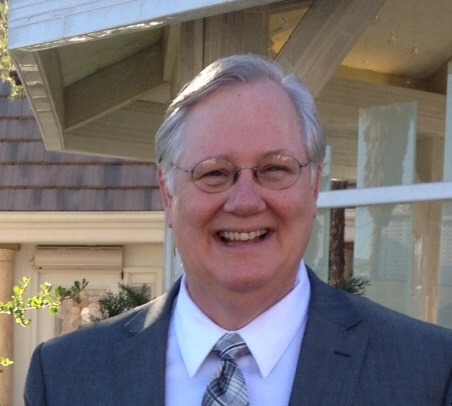 David Eastis, CRTP David Eastis, CRTP
David A Eastis, CRTP, received his Bachelor- of Arts Degree from the University of La Verne in 1980, and Master of Arts in Theology Degree from Bethany Seminary in 1984. He completed his accounting degree in 2003 from Indiana University, South Bend, Indiana.
David joined the California Society of Tax Consultants in 2004. David has served as Secretary for the Greater- Long Beach Chapter-, a 4-year- term as Secretary, a one-year term as 1st Vice President. and a two-year term as President of CSTC Society Board for 2015-2016. Currently, David serves as a Society Board Director- for Region Three.
David has been encouraged by CSTC to share his gifts of speaking and teaching as a presenter- for various chapter- meetings. the CSTC Summer Symposium, and the Fall Symposium. His topics have included: Non-Profits Form 990; S Corporations; Preachers, Teachers, and other Tax Creatures (specialized vocational Fields}; Charitable Contributions; Reading Schedule K-1s; and Ethics. And in the Fall of 2019, David has completed his eighth year teaching the Fundamentals Tax Course (Contact ) for-CSTC. David lives with his wife, Ann, and their dog Archie, in La Habra California.
 Shannon Hall, EA Shannon Hall, EA
Shannon Hall spent three years studying classical theatre at an acting conservatory, so it was only a matter of time before she got into the tax business. She has been a member of CSTC since she began preparing taxes all the way back in 2012, though her tax career truly began many years before when, as a child, she would play with the tax forms in the library. Shannon has prepared taxes at respected places like her kitchen table and H&R Block, where she served as an instructor and office manager before moving in with some laid-back CPAs in Signal Hill, CA. She has been a presenter at several local CSTC chapters and the Summer Symposium, and has also been a guest webinar presenter for Spidell Publishing and a contributing author to Enterpreneur.com. More than anything, Shannon hopes to make tax education engaging and fun and strives to make taxes less taxing. Shannon is a proud member of the Greater Long Beach Chapter of CSTC.
 Curt Harrington, Attorney at Law, EA Curt Harrington, Attorney at Law, EA
This may be the only firm that combines the power of deep highly technical engineering & patent law, with the tax planning and loss mitigation abilities of a tax specialization attorney.
As a short version of an introduction, I assist in start-up or trouble modes: Start-up mode includes: Trademark, Patent, Entity Selection, & Operating Optimization, and evaluating licensing for instant capital gain capability versus ordinary income, versus self-employment income. Trouble mode includes: Evaluating IRS & FTB Non-Compliance Errors & Planning (civil & criminal); Tax Debt Solutions: Asset Loss Reduction & Transfer Planning; Limiting Current & Future Liability. Details of help and expertise to support your project includes advice relating to the following:
(1) Tax effect is necessarily independent of patentability (using the trade secret rules on sale to enhance instant cap gains on sale);
(2) After the Tax Cuts and Jobs Act of 2017 the picture for patents, trade secrets and copyrights has changed.
(3) I provide guidance to help maximize patentable nature of such inventions by characterizing the scientific nature of the project and to reduce/eschew the purely internal IT (non-scientifically oriented "spread sheet" or "html" functions);
(4) I make the IT persons aware that the additional PTO board hurdle of finding section 101 statutory subject matter should be an early planning guide. It is believed that the elimination of capital asset status in the Tax Cuts and Jobs Act of 2017 was an eventual backlash over the greater focus on internet advertising. Tax patents from several years ago didn't help.
(5) My background as a Basic/Fortran programmer, coupled with graduate degrees in Chemical Engineering & Electrical Engineering, Law, Taxation, & Business put me in a position to help IT inventors steer clear of trouble and remain to the extent possible in capital gains control.
(6) Assisting with trademark selection to: (a) avoid bleed losses from selection of a descriptive name, (b) set the stage for least disruptive examination and a quicker publication and ultimate issuance, (c) maximize future value and tax yield and personal liability reduction through selection of a holding structure, (d) minimizing litigation that often must be capitalized and result in a cost of $1.50 for every dollar spent defending the mark, (e) act as a memory multiplier and impression puzzle to multiply any advertising return, (f) the use of trademarks and trade secrets to secure a higher price ultimate sale of the business by maximizing goodwill, & (g) the use of all intellectual property to securitize sale or other transfer of the business.
(7) Licensing techniques to select taxation of licensing income, as well as a carrot & stick technique to encourage minimum unit sales while reserving return of the license where the licensee does not perform.
(8) Using insurance, entity selection & diversification of purposed units to maximize tax deductions, reduce risk and to help evaluate and reconfigure the distribution topology.
(9) Performing an analysis between the "Prolific Inventor vs. Unitary Business" continuum to find the best fit for the future activities of the entrepreneur
(10) Selection of domicile, operating, warehousing, and manufacturing location decisions for tax reduction both for income and sales tax; planning to minimize unwanted sales & income tax surprise events in future.
(11) Help in planning for unexpected bankruptcy for both licensor and licensee in order to vary the ipso facto clause treatment, preserve the value of the business, consider potential bifurcation and differentiation of patent, trade secret and trademark rights in a way which will further be consistent with the target tax treatment of the licensor / licensee goals.
(12) Help for foreign patent holders in receiving royalties from the United States, reduction of the 30% (Fixed, Determinable, or Periodic Income) FDAP tax to a treaty rate if possible, and the establishment of a withholding agent and the filing of tax returns in the United States for U.S. source income reporting, especially to result in refunds against the FDAP.
(13) Analyzing and advising on foreign involvement in U.S. business from loans, to joint ventures, to FIRPTA involvement; and advising on the triggering of FBAR and FATCA.
(14) Characterizing, to the extent possible, computer inventions with their analog and pre State Street Bank equivalents, including emphasizing analog signals, open-ended math functions, interactive feedback, scientific instrumentation and statistical decision making.
(15) Conflict identification and isolation is a major goal, in order to identify and help the taxpayer client, reemphasizing that others can subvert and compromise the civil and criminal liability of the taxpayer client through adverse position as well as unintended criminal conspiracies.
(16) Tax problems including tax and non-tax debt, Substitute for Return (SFR), providing long range analyses for bankruptcy* (*Debt Relief Agency where actually hired to file bankruptcy, and only after voluminous acknowledged teachings),and offer in compromise options, expected ratio of debt types and, orderly advantageous payoff of tax debts as beneficial.
(17) Attorney-client privilege planning through encouragement of taxpayers to file their own returns to avoid conspiracy potential, limited engagements with tax preparers, paper filing to effect disclosure where electronic filing stifles disclosure; and the effect of taking action on tolling limitation statutes.
(18) Formation and Operation of Nonprofit entities and Nonprofit Advising from small nonprofits with state-only recognition to federal recognition; Planning for effective use of federal donation deductions, small low budget nonprofit statutory liability mechanisms, insurance, efficient use of funds, and the unbalanced limits of nonprofit and business interaction, and application of government rules for nonprofit intellectual property.
(19) Tax Specialization Continuing Education Provider No. 15203
 Monica Haven, EA, JD, LLM Monica Haven, EA, JD, LLM
Monica Haven, E.A., J.D. has a Masters in Taxation (LL.M.); she is an alum and former faculty member of the National Tax Practice Institute, a recognized speaker on the professional circuit, a sought-after guest lecturer on college campuses and at community organizations. She welcomes every opportunity to share her experience and expertise in the classroom even as she maintains her Southern California tax practice and serves her loyal clientele nationwide. Monica’s students have said, she’s a “fantastic speaker” who can take “hard subjects and put them into concepts or analogies that are easy to understand.” For additional information, published articles and extensive, useful tax information, please head for Monica’s website at www.mhaven.net.
 Karen Joyner, EA Karen Joyner, EA
Karen Joyner, EA started preparing taxes in 1988, opening her own practice in 1993, and earning her Enrolled Agents license in May 1995. She has served in many local chapters of many professional organizations, including serving as President of the San Diego East County Chapter of CSTC, chairperson for CSTC fall workshops and Running Start, and CSTC society chair for Summer Symposium for several years. She also served as director and on the education committee for the CSEA San Diego chapter. She enjoys teaching others and finding the best approach to get clients the best possible tax outcome. She enjoys the challenge of representing clients before the IRS, Franchise Tax Board, and CTFA (California Department of Tax and Fee Administration) with their collection or audit needs. Karen practices in Coronado, California and can be reached by e-mail at [email protected]. In addition, Karen works with Brass Tax Presentations and Lisa Ihm, EA in offering Stocking Your Tax Toolbox and Tax Update in the fall throughout California. Brass Tax has an Enrolled Agent exam training course in the summer for tax professionals who want to obtain this valuable credential, so that they can fully serve the needs of their clients. Please check out the website at www.BrassTax.com.
 Cliff Leiker, CPA Cliff Leiker, CPA
Mr. Leiker grew up in the banking industry as bank examiner/analyst, bank officer, and bank consultant. Today Mr. Leiker runs a CPA firm based out of Fair Oaks, California, providing accounting/bookkeeping, tax (return preparation and debt resolution), financial management, and review assurance services for small to mid-sized businesses and related owners. Mr. Leiker has worked directly with business owners and their businesses for 15 years. Mr. Leiker is an attest licensed CPA (#118656) and has a MBA in finance. Mr. Leiker is married to Linda Reid and has 4 adult children living in the Midwest. Mr. Leiker is active in his church, serving in Men's Ministry Leadership, and practices Tai Chi, Chinese Kenpo Karate, and Modern Arnis. Mr. Leiker serves on the Qualification Committee of the California Board of Accountancy.
 Veronica Marelli, EA Veronica Marelli, EA
Veronica has a formal education in Accounting, and has been an Enrolled Agent for almost 20 years. She is the owner of Tax Resolution Advocates with offices in Temecula California, SLC Utah, and Southern Idaho. Tax Resolution Advocates is a full service tax firm that specializes in tax problem resolution. She is also a Certified Tax Resolution Specialist.
She has recently added Profit First consulting to her firm. She is approximately one of only 140 tax professionals in the US to become a Profit First Professional. Profit First is an organization dedicated to eradicating entrepreneurial poverty.
Veronica served as 1st Vice President of the California Society of Tax Consultants at the State level. She also served the local North San Diego Chapter as second Vice President for many years. Both of these positions were as the Education Chair. It was her main responsibility to ensure Tax professionals Statewide were trained and up to date on all new State and federal tax laws and changes to the current tax code.
Veronica has a vast amount of experience serving and working on Board of Directors. She has, or is currently serving on five different boards of Not for Profit organizations. These organizations have helped our communities by providing shelter for abused women and homeless teenagers, feeding underprivileged children, and the planting of new Christian Churches.
 Gary Quackenbush, Esq Gary Quackenbush, Esq
Gary Quackenbush operates his Financial Solutions law practice, GQ LAW, out of the Rancho Bernardo area in San Diego, California. Since 1988 his emphasis has been tax and financial problem solving and implementing solutions for tax problem resolution such as; Offers in Compromise, audit reconsideration, appeals, installment agreements, bankruptcy, federal district court actions, federal tax court actions, etc.
His estate planning practice focuses on wills, trusts, and estate administration including probate court work. His office handles civil litigation cases such as personal injury, contract disputes, property disputes, and business matters. His business consulting involves choice of and formation of business entities such as sole proprietorships, partnerships, corporations, and Limited Liability Companies.
Gary received his Bachelor of Science degree in business finance from Brigham Young University in 1984. He received his Juris Doctor degree from California Western School of Law in 1988. He is admitted to practice in all courts in the state of California and in all courts in the state of Colorado, US Bankruptcy Court in the Southern, Central, and Northern Districts of California, Federal District Court in the Southern and Central districts of California, Federal District Court and US Bankruptcy Court in the District of Colorado, and U.S. Tax Court.
Gary is a regular guest lecturer to tax professionals, attorneys, and volunteer organizations. He is the host of his own podcast radio show “GQ on the Law” available on iTunes, Podbean, and Stitcher Radio. Since 2010 he has been a weekly guest on the “Word on Wealth” radio program with Marty Schneider on KCBQ 1170 AM and KPRZ 1210 AM every Tuesday. He has been a guest on UTTV “The American Dream” and the “Taylor Baldwin Show” and has appeared on NBC, ABC, CBS, and KNSD TV. He is Past-President of the California Society of Tax Consultants, San Diego Chapter and currently is President of CSTC at the state level. You can contact Gary at [email protected]
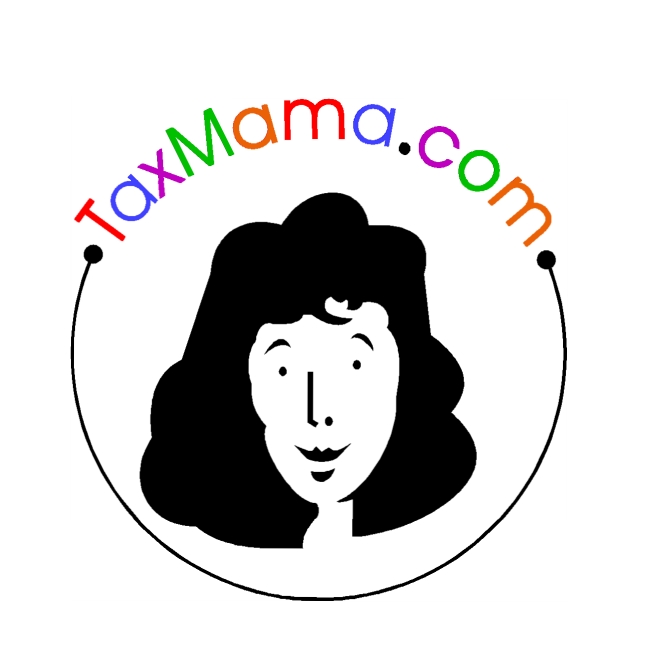 Eva Rosenberg, EA, MBA Eva Rosenberg, EA, MBA
Eva Rosenberg, EA is the Internet’s TaxMama®. She is known for her award-winning books. The newest is “Small Business Taxes Made Easy.” The 4th edition includes updates through the SECURE Act.Eva teaches a unique EA Exam training course at IRSExams.school, and many other popular tax courses at https://www.cchcpelink.com/teamtaxmama
 Jane Ryder, EA, CPA Jane Ryder, EA, CPA
Jane Ryder, EA, CPA has been providing tax preparation, accounting services, and tax collection resolution services since 1980. She runs her San Diego CPA firm and writes and speaks on many income tax, business compliance and accounting topics. Jane has a business centric practice, preparing and consulting on tax, accounting, and compliance matters for Corporations, S-corporations, LLC’s, Partnerships, and Trusts. She also specializes in IRS and state agencies collection problems, payment plans, audit representation, audit appeals, offers in compromise, and other compliance related issues. She earned a BS in Business Administration (Accounting) from SDSU and is currently licensed with the California State Board of Accountancy and admitted to practice before the the Internal Revenue Service as an Enrolled Agent.
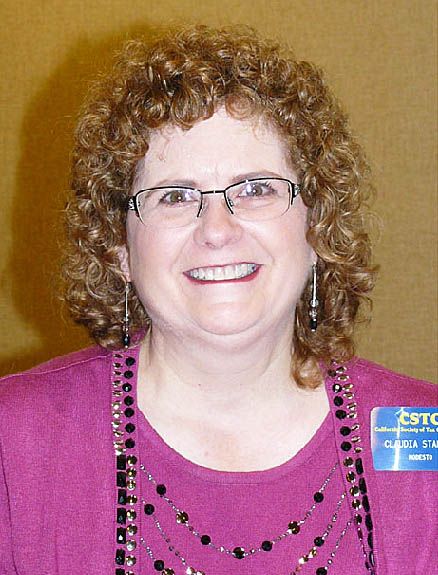 Claudia Stanley, CPA, EA Claudia Stanley, CPA, EA
Claudia Stanley is a practicing CPA & EA in the Fresno area, as partner in C. Stanley, CPA & Associates. She is a graduate of California State University, Fresno, and serves on the boards of the Central California Chapter of Enrolled Agents and Fresno chapter of American Business Women’s Association. Claudia is a long time member of the Central Valley Chapter of California Society of Tax Consultants and was named their 2016 member of the year. She was also named one of 2001 Top Ten Women of the Year in the nation by American Business Women’s Association. She frequently speaks on various tax topics.
 Susan Tinel, EA, CRTP Susan Tinel, EA, CRTP
Susan Tinel is an Enrolled Agent with over 15 years of experience working with small and medium-sized businesses and individuals. Susan heads up April 15 Taxes, Inc., a full-service, cloud-based firm offering services in tax, accounting and entity filings. Based in San Diego, she works with more than 150 clients across the country, in Canada and the United Kingdom, 85 percent of which are small businesses. She is a QuickBooks Online Certified Advanced ProAdvisor. Susan teaches live events and webinars for tax and accounting professionals and businesses on various financial topics and practice management. Look for her articles and guides on various platforms, including AccountingWEB.com and firmofthefuture.com, about Taxes, Company Strategy, Personal Behavior and Ethics at work.

About our Exhibitors/Sponsors
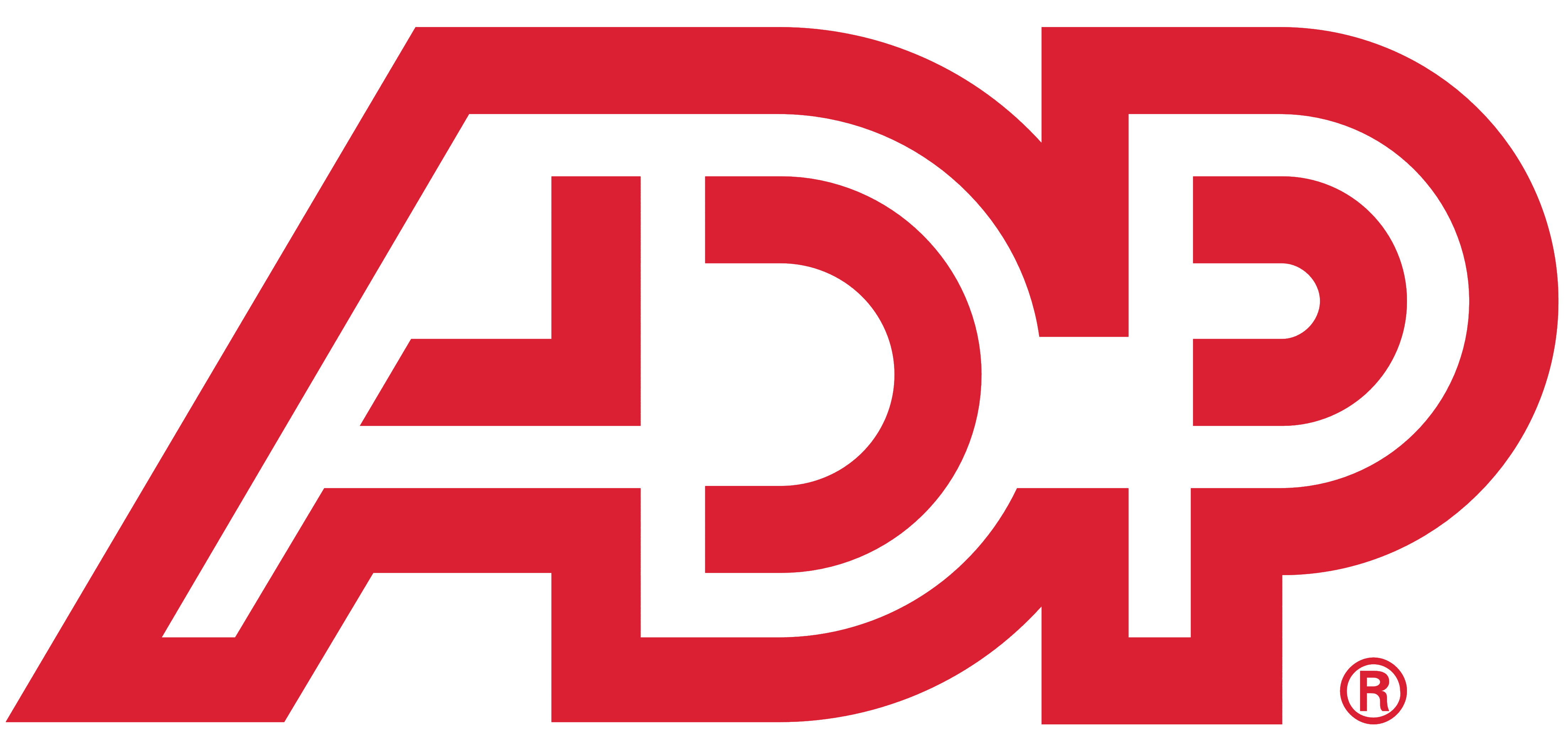 ADP ADP
At ADP, what we do is about people. Although we have a strong history of providing solutions for human resource challenges, we strive to do more than that. We challenge ourselves to anticipate, think forward and take action in a way that empowers us to shape the changing world of work.
For nearly 70 years, we’ve led the way in defining the future of business solutions. ADP is proud to be named to FORTUNE Magazine’s “World’s Most Admired Companies®” list for 12 consecutive years*.
We are a comprehensive global provider of cloud-based human capital management (HCM) solutions that unite HR, payroll, talent, time, tax and benefits administration, and a leader in business outsourcing services, analytics and compliance expertise. Our unmatched experience, deep insights and cutting-edge technology have transformed human resources from a back-office administrative function to a strategic business advantage.
 Latino Tax Pro Latino Tax Pro
The only tax & bookkeeping training in English y en Español. Our Courses are designed for those tax professionals who serve Spanish speaking clients and need Spanish speaking tax preparers. We use a unique interactive e-book and online training system.
Questions?
Contact the California Society of Tax Consultants at (949)715-4192 or [email protected]

The Symposium presentations have been designed to meet the requirements of the Return Preparer Office, the California State Board of Accountancy; and the California Tax Education Council including code 31 of Federal Regulations10.6 (g). This does not constitute an endorsement by these groups. A listing of additional requirements to renew tax preparer registration may be obtained by contacting CTEC at P.O. Box 2890, Sacramento, CA. 95812-2890, or phone CTEC at (877) 850-2832, or on the Internet at www.ctec.org.
|




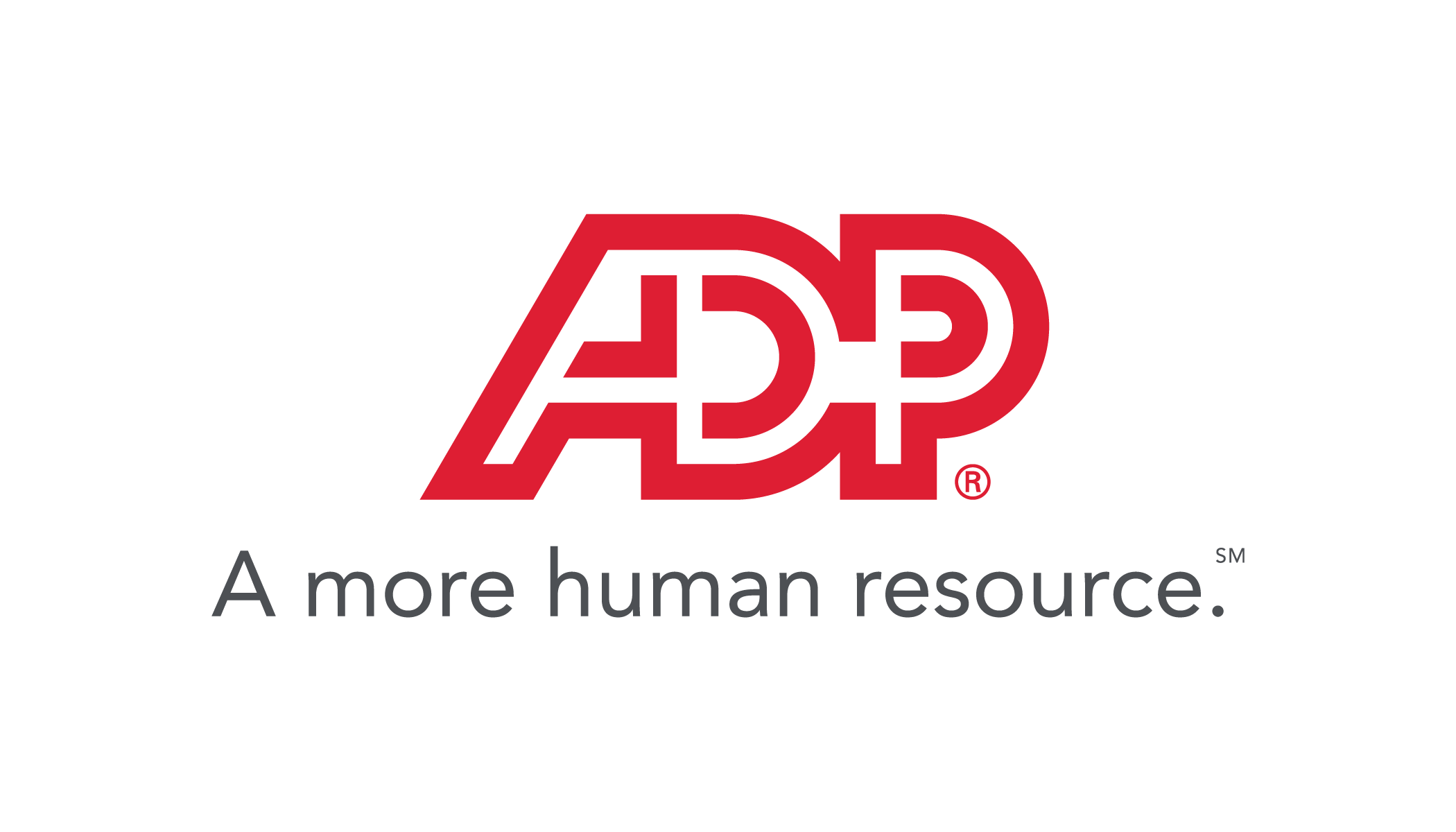
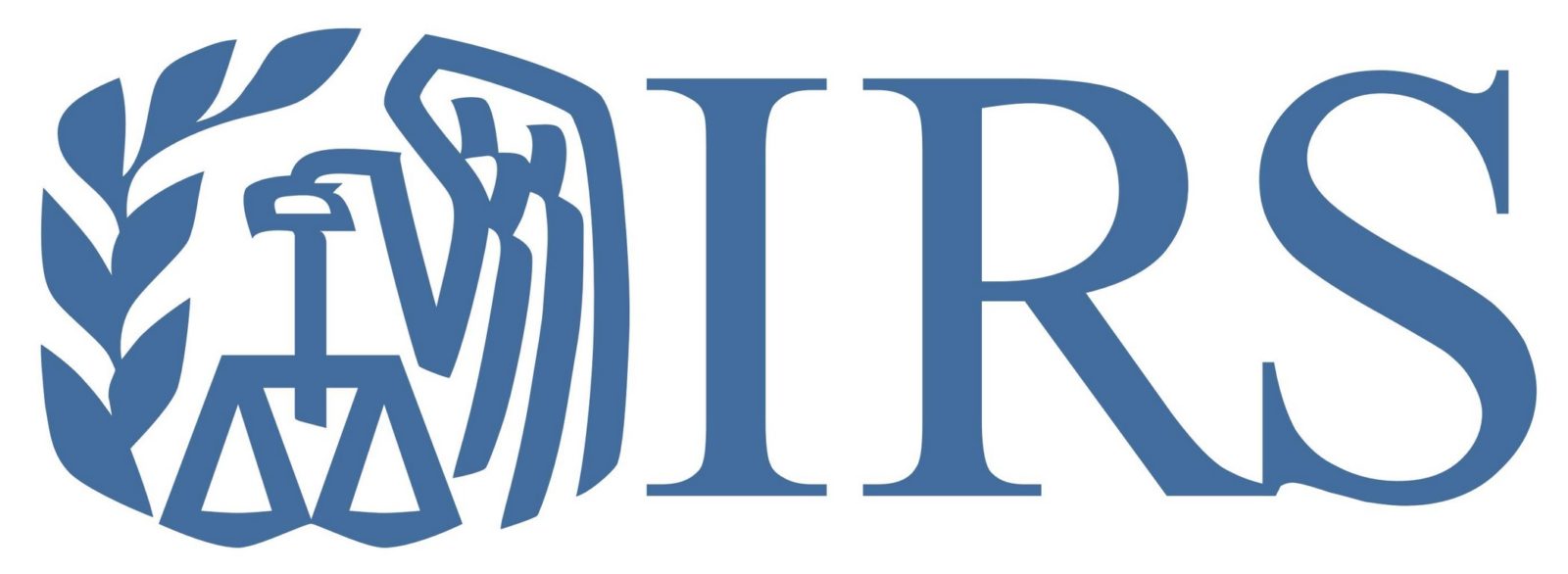



 Michael Blue, Esq., Attorney at Law, J.D, CPA, LLM
Michael Blue, Esq., Attorney at Law, J.D, CPA, LLM LG Brooks, EA, CTRS
LG Brooks, EA, CTRS Edward Cotney, Certified Exit Planner, Certified Philanthropic Developer, Family Wealth Counselor
Edward Cotney, Certified Exit Planner, Certified Philanthropic Developer, Family Wealth Counselor David Eastis, CRTP
David Eastis, CRTP Shannon Hall, EA
Shannon Hall, EA Monica Haven, EA, JD, LLM
Monica Haven, EA, JD, LLM
 Cliff Leiker, CPA
Cliff Leiker, CPA Veronica Marelli, EA
Veronica Marelli, EA Gary Quackenbush, Esq
Gary Quackenbush, Esq Eva Rosenberg, EA, MBA
Eva Rosenberg, EA, MBA Jane Ryder, EA, CPA
Jane Ryder, EA, CPA Claudia Stanley, CPA, EA
Claudia Stanley, CPA, EA Susan Tinel, EA, CRTP
Susan Tinel, EA, CRTP


